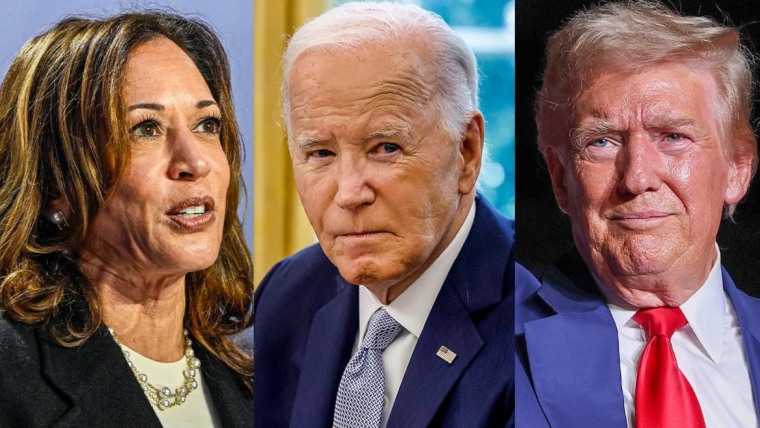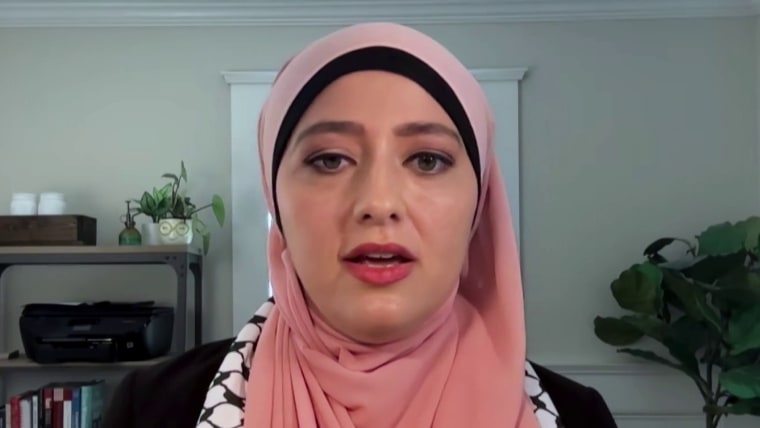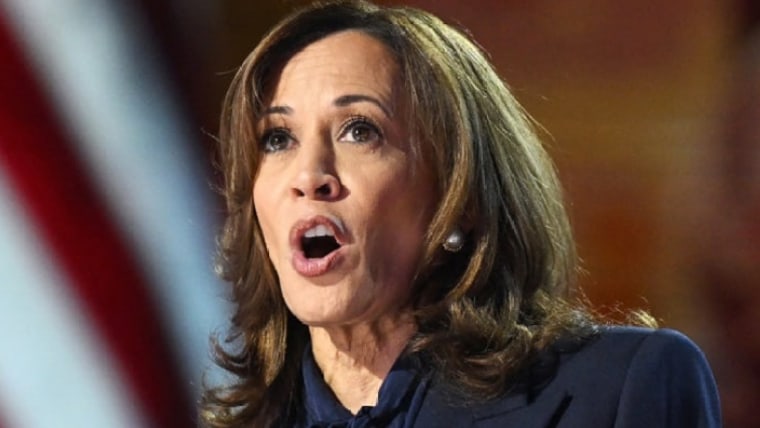Amer Ghalib, a Muslim immigrant from Yemen who serves as the mayor of Hamtramck, Michigan — made headlines this week by endorsing Donald Trump for president. In a Facebook post, Ghalib wrote, “President Trump and I may not agree on everything, but I know he is a man of principles.” He also called him “the right choice for this critical time.”
If Ghalib —a self-described conservative Democrat — had endorsed Trump in 2020, then he likely would have been subjected to a swift backlash. As a candidate and as a president, Trump had weaponized hate against Muslim and Arab Americans and targeted us with his “Muslim travel ban” that in many cases separated families. And Ghalib seems to have braced for a backlash in his endorsement. He wrote, “I’ll not regret my decision no matter what the outcome would be, and I’m ready to face the consequences.”
If Ghalib —a self-described conservative Democrat — had endorsed Trump in 2020, then he likely would have been subjected to a swift backlash.
But even though 81% of voters in Hamtramck, a majority-Muslim city, cast their ballots for Biden in 2020, there appears to have been no notable outrage to Ghalib throwing his support to Trump. That should concern Vice President Kamala Harris and her campaign. There are large Muslim and Arab populations in Michigan, obviously, but also in Pennsylvania, Georgia and Virginia.
Ghalib said Trump recently met with him for 20 minutes when he was holding a rally in Michigan. Ghalib, a vocal critic of the Biden administration’s seemingly blind support of Israeli Prime Minister Benjamin Netanyahu’s devastating war in Gaza, cited that as a main driver of his decision. “We asked multiple times that they should change course, but nothing happened,” he told reporters. “Kamala Harris is still going in the same path and nothing was addressed.” Ghalib claims Trump, without providing details, promised to end the war. But even if Trump did, given his anti-Palestinian record as president, we know that it would be consistent with the goals of Israeli Prime Minister Netanyahu, not the Palestinian people.
According to a recent poll of Muslim voters by Council of American-Islamic Relations, only 11% of Muslim voters nationwide said they planned to support Trump in November. Ghalib’s endorsement notwithstanding, the news isn’t that Muslims are supporting Trump; it’s that they’re not supporting Harris. Winning about 30% of Muslim’s votes, she was , according to that poll, statistically tied with Green Party candidate Jill Stein. Contrast Harris polling at 30% among Muslim voters with the estimated 69% of Arab or Muslim voters across the country who voted for Biden in 2020.
As a Muslim voter who is clear about the harm Trump will cause, this is worrisome—but not unexpected. Harris began her campaign inheriting a palpable anger directed at Biden within the Muslim and Arab community for his bear hug of Netanyahu and his continuing refusal to slow down the supply of weapons to Israel’s military despite the deaths of tens of thousands of innocent people. But when Biden dropped out and Harris became the Democratic nominee, there was a fresh start. Many in these communities wanted to support Harris—and many are.
But the Uncommitted Movement leaders told NBC News last week that Harris had given them the “cold shoulder” and “fumbled” by refusing even the “small gesture” of allowing a Palestinian American speaker at August’s Democratic National Convention.

That said, unlike Ghalib, “Uncommitted Movement” leaders in Michigan announced that while they were not endorsing Harris, their top priority was defeating Trump. They said Trump’s agenda includes “plans to accelerate the killing in Gaza while intensifying the suppression of anti-war organizing.” As a result, they explained point blank, “We must block Donald Trump, which is why we urge Uncommitted voters to vote against him and avoid third-party candidates that could inadvertently boost his chances.”
Georgia state Rep. Ruwa Romaan, a Palestinian American, was one of the people on the short list to speak at the DNC but was effectively blocked by Harris and the Democratic Party. Romaan told me in an email that Ghalib’s endorsement of Trump “does not represent the overwhelming majority of Muslim voters.” But she added that the Harris campaign is missing an opportunity to animate “a multifaith, multiracial, multigenerational coalition whose ask is simple: stop the bombs and uphold international humanitarian law” when it comes to Netanyahu and his military.
Romaan, a first-term Democratic lawmaker in the battleground state of Georgia, said there is still time for Harris to address this issue. If she does, Romaan added, it will lead to a “decisive edge come November.”
Georgia state Rep. Ruwa Romaan, a Palestinian American, was one of the Palestinian-Americans on the short list to speak at the DNC.
While the suffering in Gaza doesn’t get the same headlines it got earlier this year, that suffering is still top of mind for many in the Arab and Muslim communities and our allies. Because the suffering is ongoing. Saturday, the Israeli military launched missiles at a school they claim was being utilized by Hamas and, according to CNN, killed at least 22 people, mostly women and children. “There was no warning. We were sitting in the schools, and suddenly missiles started raining down on us,” a witness told a CNN reporter. “Where is the conscience?”
Beyond Gaza, we are now seeing an alarming and deadly escalation of Israeli military action in Lebanon that has killed more than 500 people and displaced thousands. Israel and Iran-backed Hezbollah have been bombarding each other since the Oct. 7 terrorist attack by Hamas sparked Israel’s invasion of Gaza. This could get far worse. UNICEF warned Tuesday that “any further escalation in this conflict would be catastrophic” for children and families in Lebanon. If the media is again filled with images of dead women and children caused by Netanyahu’s use of U.S. weaponry, Harris will have to denounce this or risk losing even more support from communities that Democrats have depended on for victory.

During her acceptance speech at the DNC, Harris spoke about Palestinians in a way that no Democratic presidential nominee ever has. She described the “the scale of suffering” in Gaza as “heartbreaking.” She not only committed to not only to working toward a ceasefire—which she first called for in March, well before Biden—but she also vowed to ensure the “Palestinian people can realize their right to dignity, security, freedom and self-determination.”
In contrast, Trump has repeatedly used the word “Palestinian” as a slur to attack Democrats who express concern for the brutal suffering of Palestinians in Gaza. As President, he cut millions of dollars in vital aid to Palestinians as Netanyahu urged him. And during the Gaza war, Trump vocally criticized Harris’s calls for a ceasefire--with his primary concern not being the slaughter of Palestinians but that Israel was “absolutely losing the PR war.”
Trump is as pro-Netanyahu and anti-Palestinian as they come. He may have locked up the endorsement of the Mayor of Hamtramck, but thankfully the bigoted Trump will not win a majority of Muslim and Arab American voters in 2024. Yet in a close race, even peeling away a few percentages from these two communities could hand Trump a victory. That is why Harris needs to step up to address the policy concerns of these two communities now. Not just for the good of the Arab and Muslim communities, but for the benefit of all Americans who want to see Trump defeated.

